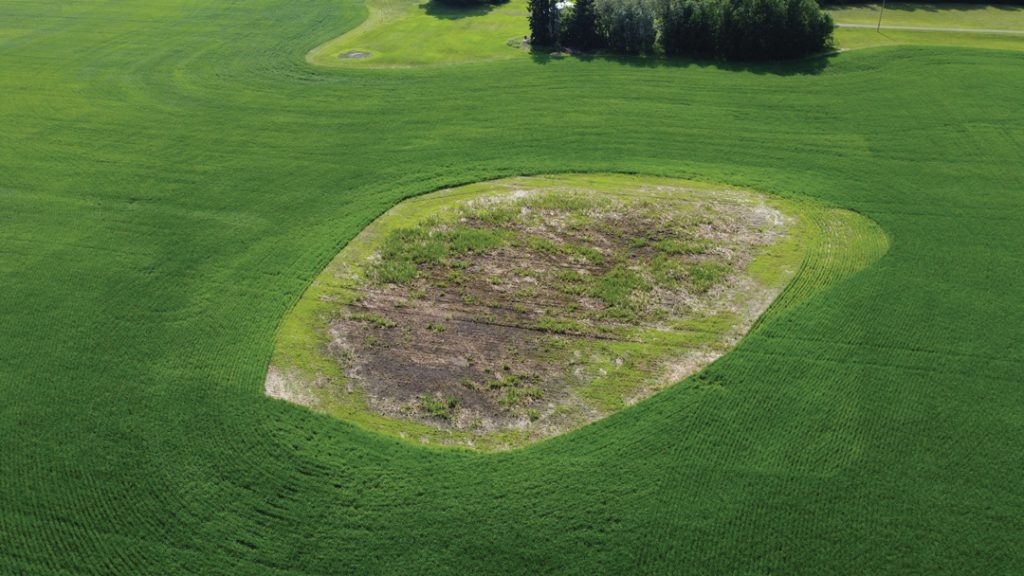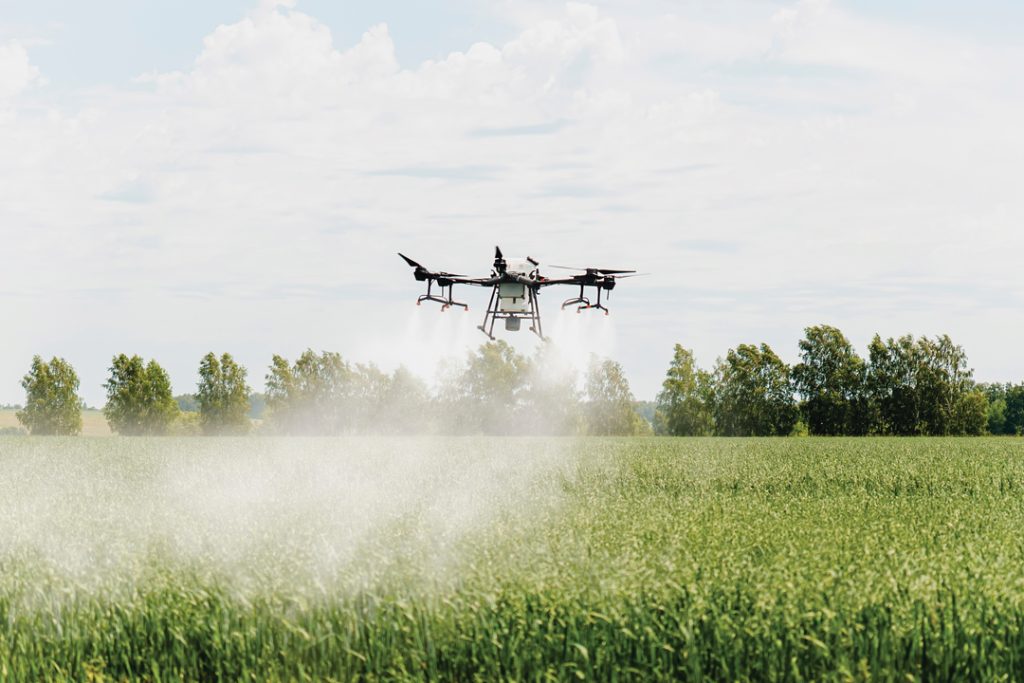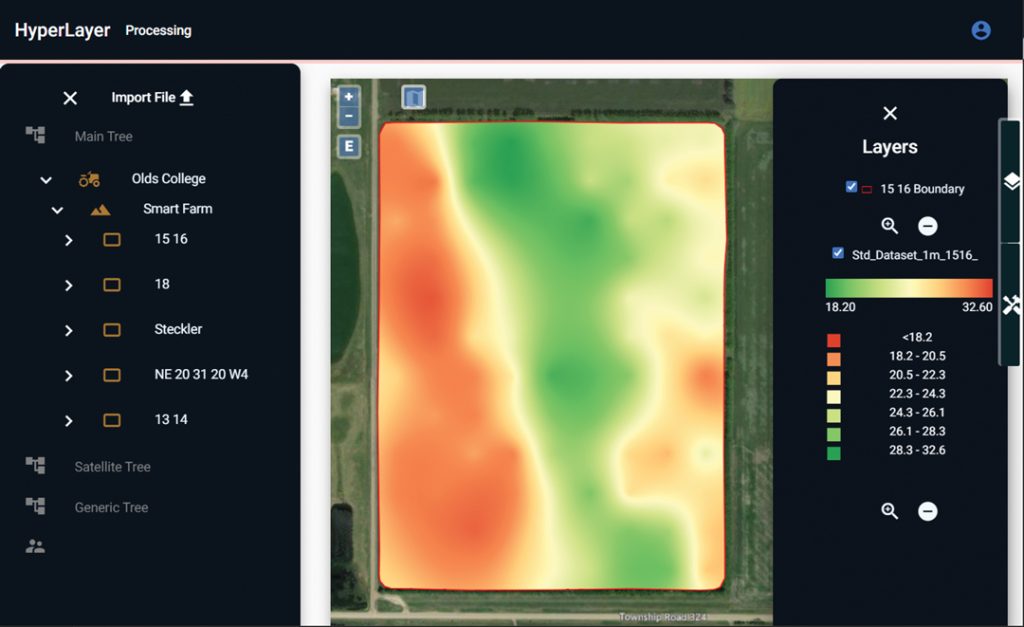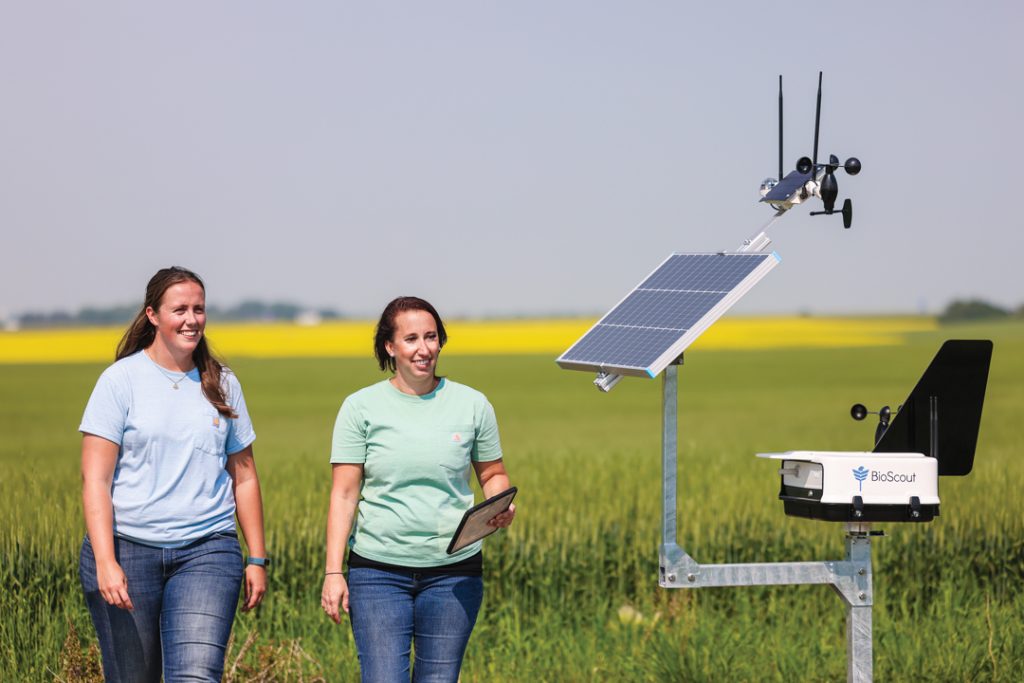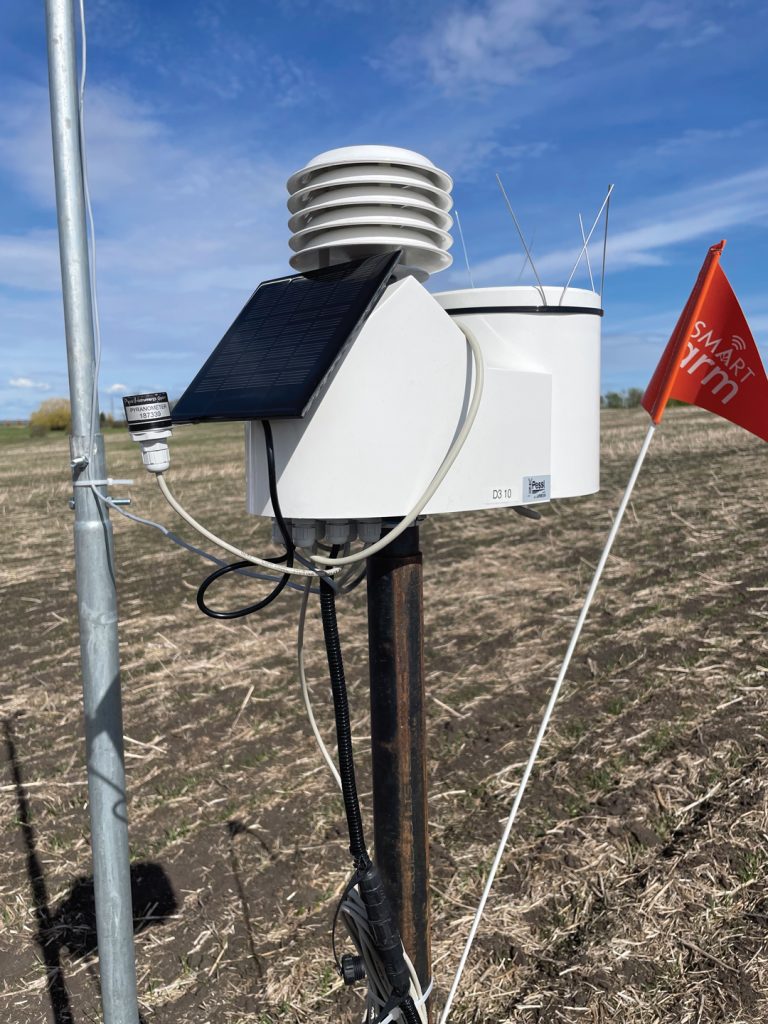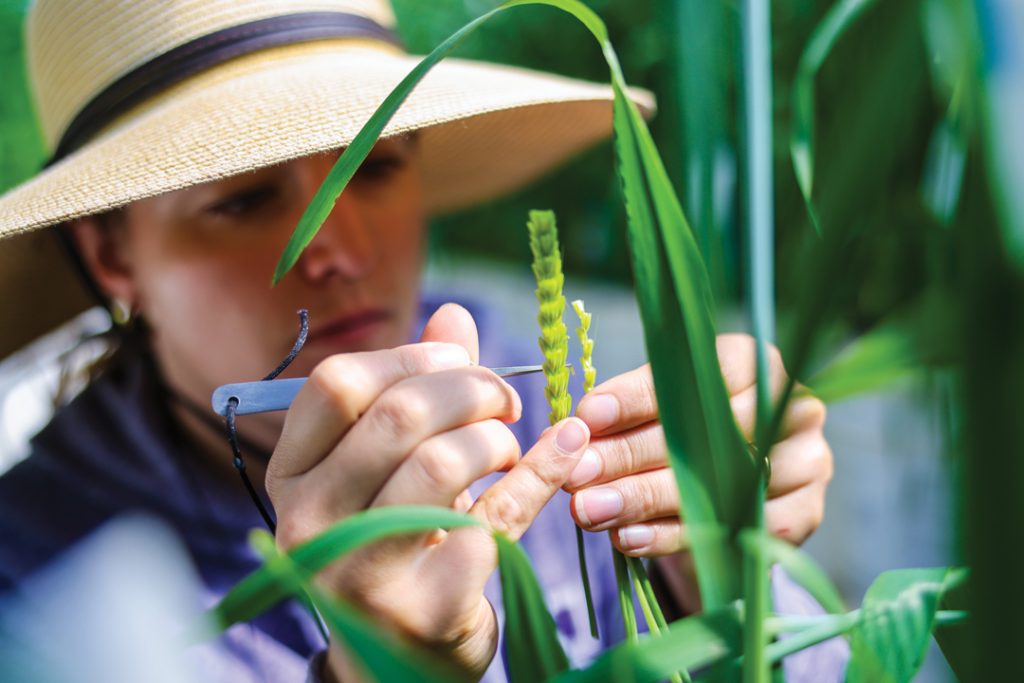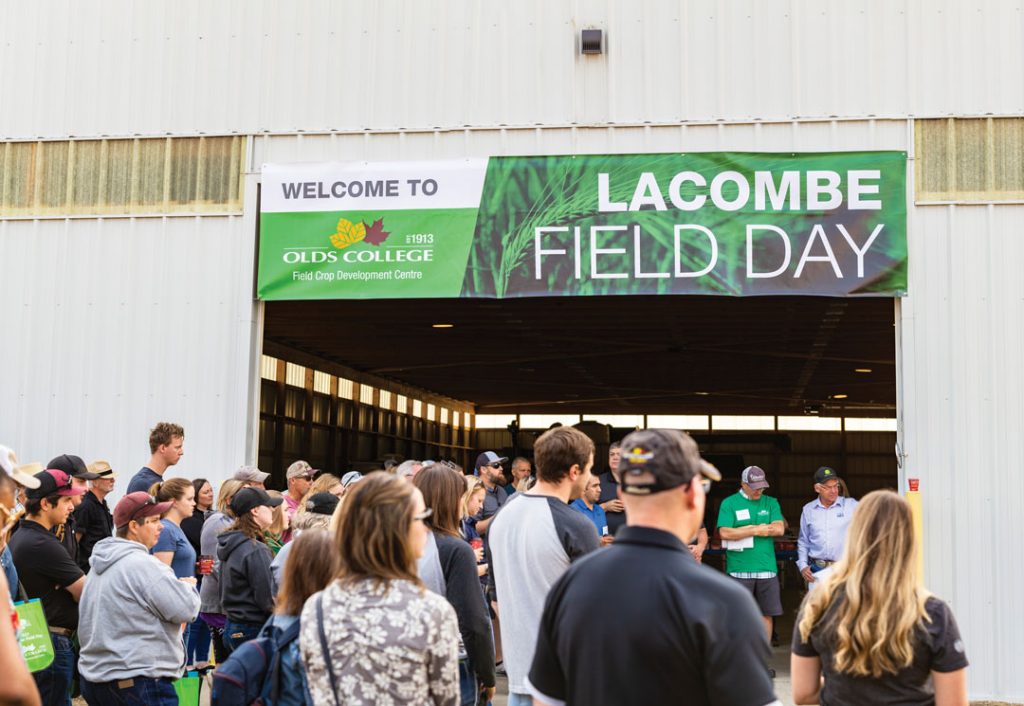SEE THE FIELD IN A NEW WAY
On the Olds College Smart Farm, data is rolling in from an ongoing research project that utilizes the Raven Augmenta Field Analyzer. This camera vision machine learning technology senses crop conditions using digital imagery to adjust input application during field operations. Unlike current methods that rely on pre-determined maps, the camera uses an algorithm to make instantaneous decisions about the rate of inputs to apply on crops.






